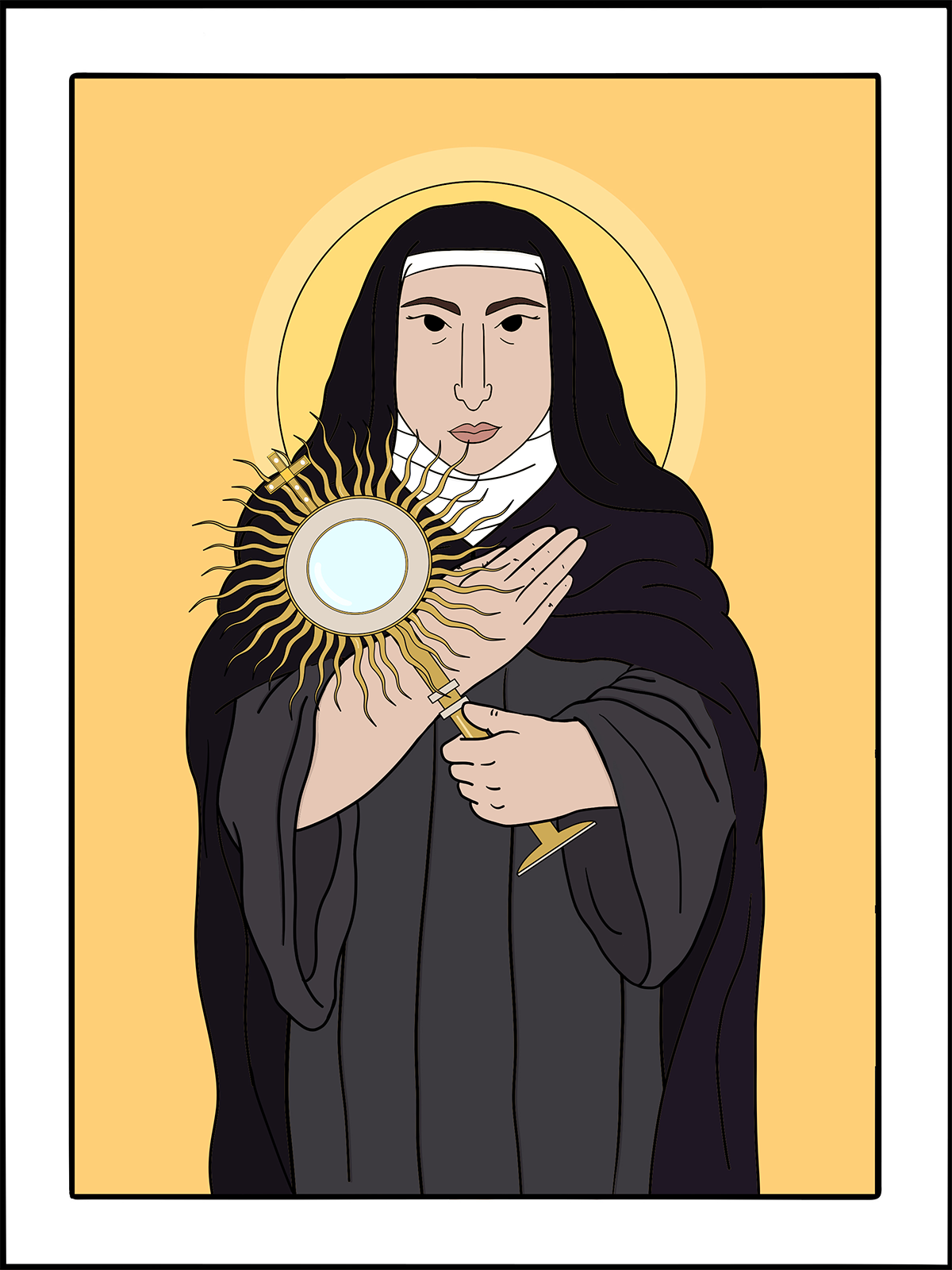
August 11
Clare of Assisi
Monastic, 1253
art by Rev. Kirsten Kohr of Geneva, Ohio O God, whose blessed Son became poor that we, through his poverty, might become rich: Deliver us from an inordinate love of this world, that we, inspired by the devotion of your servant Clare, might serve you with singleness of heart and attain to the riches of the age to come; through Jesus Christ our Lord, who lives and reigns with you and the Holy Spirit, one God, for ever and ever. Amen.
In the latter part of the twelfth century, many Christians felt that the church had fallen on evil days and was weak and spiritually impoverished. It was then that Francis of Assisi renounced his wealth and established the mendicant order of Franciscans. At the first gathering of the order in 1212, Francis preached a sermon that was to make a radical change in the life of an eighteen-year-old young woman named Clare Offreduccio.
The daughter of a wealthy family, Clare was inspired by Francis’ words with the desire to serve God and to give her life to the following of Christ’s teaching. She sought out Francis and begged that she might become a member of his order, placing her jewelry and rich outer garments on the altar as an offering. Francis could not refuse her pleas. He placed her temporarily in a nearby Benedictine convent. When this action became known, friends and relatives tried to take Clare home again, but she remained adamant. She prevailed, and soon after was taken by Francis to a poor dwelling beside the Church of St. Damian at Assisi. Several other women soon joined her. She became the Superior of the order, which was called the “Poor Ladies of St. Damian,” and, after her death, the “Poor Clares” in tribute to her.
The order’s practices were austere. They embraced the Franciscan rule of absolute poverty. Their days were given over to begging and to works of mercy for the poor and the neglected. Clare herself was a servant, not only to the poor, but to her nuns. Her biographer says that she “radiated a spirit of fervor so strong that it kindled those who but heard her voice.”
Clare governed her community for 40 years, and outlived Francis by 27 years. After the death of Francis, the order that he had founded quickly began to relax its discipline of strict poverty, and it was Clare and the other sisters who continually urged the brothers to persevere in the commitment that they had made. She resisted several attempts by successive popes to impose a more traditional Benedictine rule on the sisters, since the discipline followed by her community was considered to be too austere for women. When Pope Gregory IX tried to absolve her from the obligation to follow the strict poverty of her rule, Clare replied: “I need to be absolved from my sins, not from the obligation of following Christ.” Ultimately, her community and its rule were recognized by the church as a legitimate expression of religious life for women.
In 1253, her last illness began. Daily she weakened, and daily she was visited by devoted people, by priests, and even by the pope. On her last day, as she saw many weeping by her bedside, she exhorted them to love “holy poverty” and to share their possessions. She was heard to say: “Go forth in peace, for you have followed the good road. Go forth without fear, for he that created you has sanctified you, has always protected you, and loves you as a mother. Blessed be God, for having created me.”
Excerpted directly from “Lesser Feasts and Fasts 2022,” p. 353-354.

